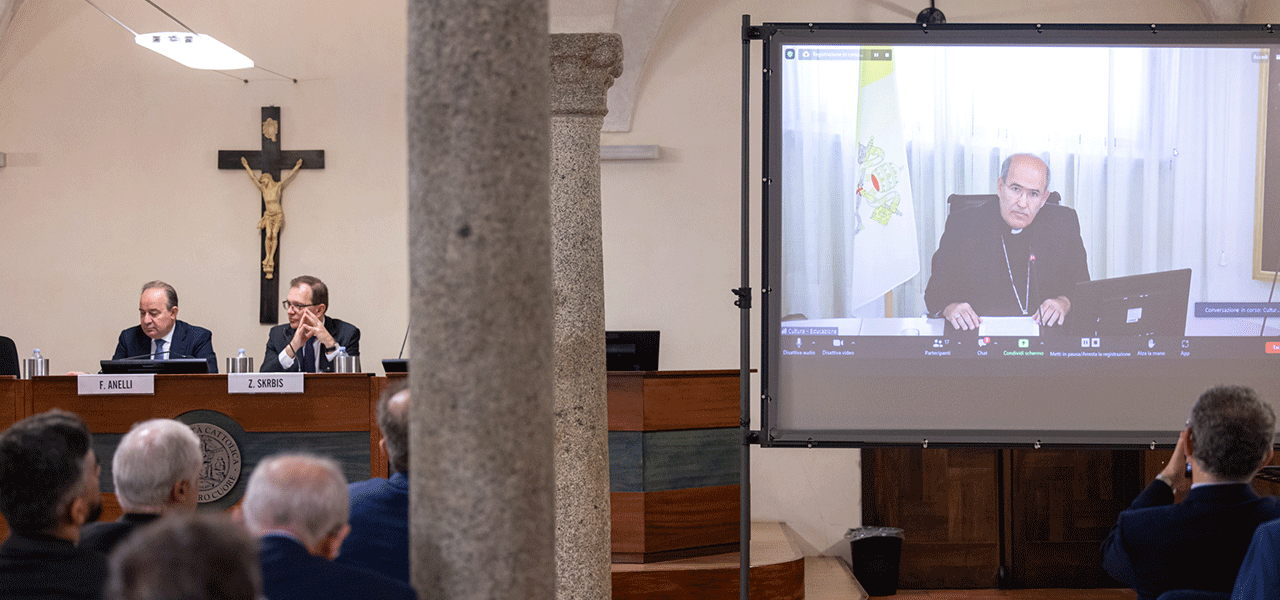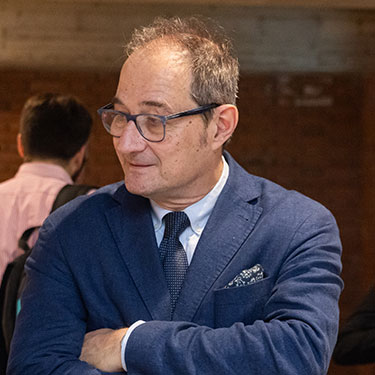Artificial Intelligence has the same innovative power as the transition from orality to writing. Being able to channel this innovation towards the common good is one of the great challenges of our time, and universities are at the forefront. This is a topic on which the international network of Catholic Universities, SACRU, has been working for some time with its multidisciplinary approach.
Cardinal José Tolentino de Mendonça, Prefect of the Dicastery for Culture and Education of the Holy See, emphasized the need for the renewal to face the new challenges posed by reality while firmly maintaining awareness of one's own identity and origin. The international meeting is organized by the SACRU network and hosted today and tomorrow at the Milan campus of the Catholic University of the Sacred Heart.
Artificial Intelligence is a sector that, as highlighted by Zlatko Skrbis, President of SACRU and the Australian Catholic University, in his opening speech of the first plenary session of the two-day event, will grow by 38% by 2030, with its global market predicted to be worth over $1.5 trillion. This rapid and constant growth will revolutionize every aspect of our daily life, including education, medicine, work, and the fight against climate change.
«Personally, I believe that we should not fear new technology tools but learn to use innovations wisely to build new educational and research paths- said Franco Anelli, Rector of the Università Cattolica-. The major global challenges of our time have prompted the urgent need to formulate new models of thought […] One of the main strengths of the activities of SACRU in these three years has been the criteria of multidisciplinarity. […] This is very important because, as we know, in his encyclical letter Laudato Si', Pope Francis called for a virtuous dialogue between different disciplines to strengthen the impact of science for the common good».
This is the common thread guiding the work of the plenary and parallel sessions of the conference, which will conclude tomorrow with a preview of the network's Position Paper on the topic of AI. Anelli emphasized, «I am confident that this Scientific Colloquium will not be only an occasion for examining the benefits and risks of a particular technology. On the contrary, I hope it will address Catholic Universities' fundamental purposes and aspirations ina technologically advanced society. Universities must be open to innovation».
In order to achieve this and make a real impact, all educational institutions must be willing to take risks, particularly when it comes to addressing the future, which is most prominently embodied by Artificial Intelligence in our present time. «Risk, we know well, is inseparable from an educational context worthy of its name - said Tolentino-. Reasonable risk is, for example, in the present context, to keep priorities duly safeguarded: the priority of the ethical over the technical, the primacy of the person over things».
Therefore, it becomes necessary to choose where to focus, and for Cardinal Tolentino, the path is clear: «The great investment to be made can only be a human one, that is, an investment in the formation of every member of the human family so that they may develop their cognitive, creative, spiritual and ethical potential and thus contribute, in a qualified way, to the common good. The big question behind artificial intelligence continues to be anthropological». Tolentino, referring to the words of the Holy Father, emphasized that the true frontier will increasingly be that of algor-ethics: Artificial Intelligences are not neutral but require intermediate social bodies that represent the ethical sensitivity of researchers, educators, and scientists. The technological world is becoming increasingly complex, and this aspect cannot be left to the sensitivity of individuals alone.
In such a broad challenge that concerns all academic institutions and the entire world and may seem discouraging at first glance, Catholic universities have one certainty: the trust radiated by the Christian promise. «Those who inhabit the university world cannot afford not to have hope. Hope is our mission. It is not superficial optimism, but it is knowing how to risk in the right way» concluded Tolentino.
SACRU is a network composed of eight Catholic universities in four continents, coordinated by the Università Cattolica. They collaborate with the aim of promoting global education for the common good and excellent interdisciplinary research inspired by Catholic social teaching.
The network was founded in 2020 and includes the Australian Catholic University (Australia), Boston College (USA), Pontificia Universidad Católica (PUC) de Chile (Chile), Pontifícia Universidade Católica do Rio de Janeiro (Brazil), Sophia University (Japan), Universidade Católica Portuguesa (Portugal), and Universitat Ramon Llull (Spain). The Università Cattolica hosts the SACRU Secretariat, and Professor Pier Sandro Cocconcelli is the SACRU Secretary-General and Vice-Rector of Università Cattolica.






